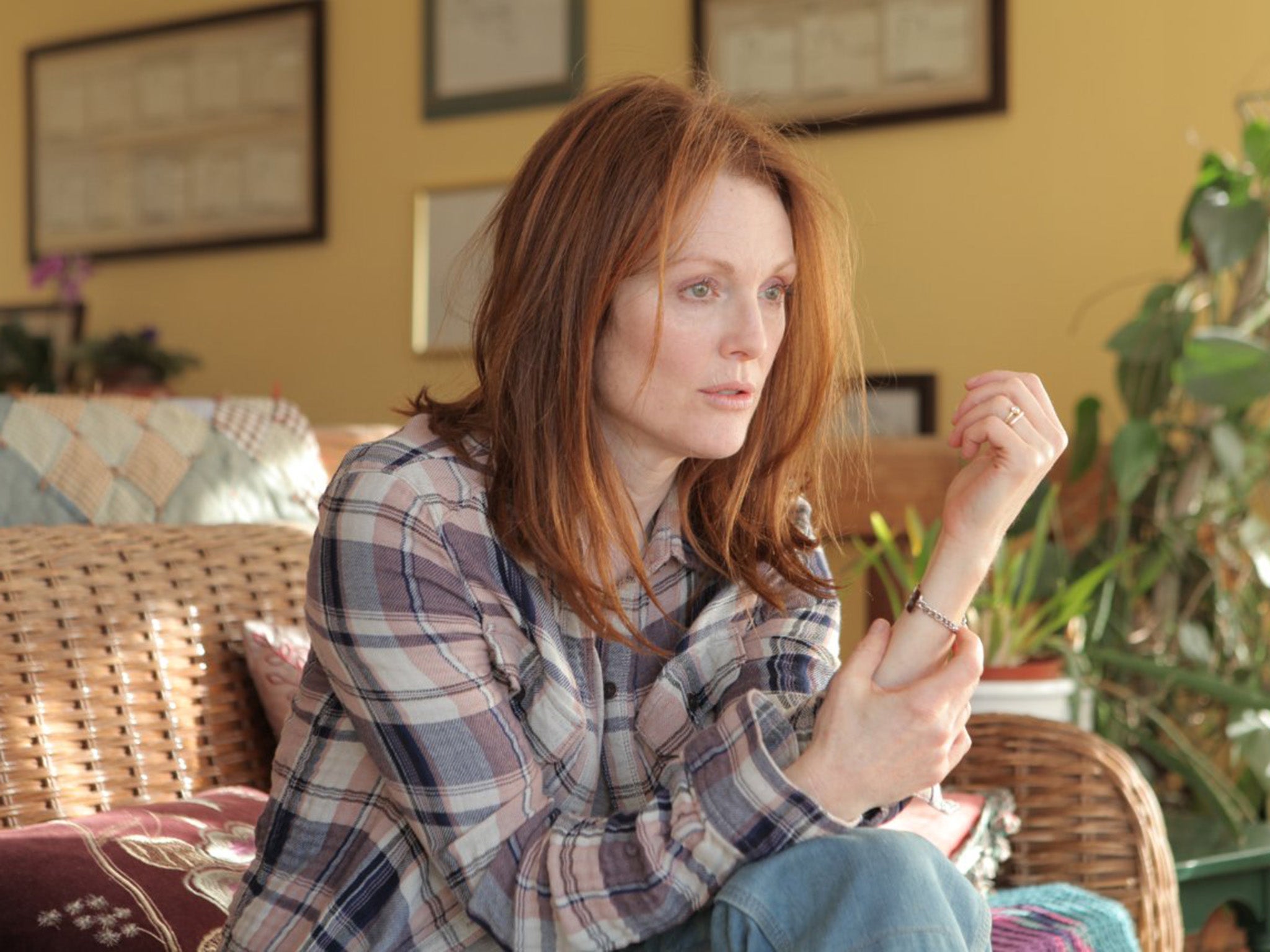Still Alice, film review: Oscar winner Julianne Moore is outstanding in a bland film
Richard Glatzer, Wash Westmoreland, 101 mins, starring: Julianne Moore, Alec Baldwin, Kristen Stewart

Your support helps us to tell the story
From reproductive rights to climate change to Big Tech, The Independent is on the ground when the story is developing. Whether it's investigating the financials of Elon Musk's pro-Trump PAC or producing our latest documentary, 'The A Word', which shines a light on the American women fighting for reproductive rights, we know how important it is to parse out the facts from the messaging.
At such a critical moment in US history, we need reporters on the ground. Your donation allows us to keep sending journalists to speak to both sides of the story.
The Independent is trusted by Americans across the entire political spectrum. And unlike many other quality news outlets, we choose not to lock Americans out of our reporting and analysis with paywalls. We believe quality journalism should be available to everyone, paid for by those who can afford it.
Your support makes all the difference.Julianne Moore justly won a Best Actress Oscar for her performance as the Columbia University academic whose memory begins to fail and who is eventually diagnosed with early onset Alzheimer’s disease.
The brilliance of her performance lies in its matter of fact quality. This is not a grandstanding diva-like turn but is all the more affecting because of its restraint. Alice Howland is a wife and mom as well as a linguistics professor. She is beautiful, intelligent, and has an extraordinary grasp of language. Then, the words begin to fail her.
At first, she reacts to her deteriorating condition in dismissive fashion, as if she will soon overcome the problem as she has done every other hurdle in her life. She has her work, her jogging and her word puzzles to occupy her. As the condition worsens and she realises her mind is going, she is utterly pragmatic in he way she deals with the repercussions on herself and her family.
Writer-directors Glatzer and Westmoreland have written a rich, multi-layered screenplay that works equally well as family melodrama and as a meditation on language, identity and mortality. There are even elements of a msytery-thriller in the style of other memory loss movies like Memento.
The film deals with Alice’s relationships with her husband and children in subtle fashion. There is an attrition between Alice and her would-be actress daughter Lydia (Kristen Stewart). She can’t hide her dismay that Lydia is throwing away the chance of a college education in the hope of a career that may not materialise. Stewart is excellent, capturing Lydia’s mix of defiance and devotion toward her mother. Alec Baldwin also registers strongly as the husband whose love for Alice can’t quite temper his own career ambitions.
Visually, the film, shot on a lowish budget and with the look of a TV drama, is underwhelming. It seems a little bland and conventional given its subject matter and Moore’s searing performance.
Join our commenting forum
Join thought-provoking conversations, follow other Independent readers and see their replies
Comments